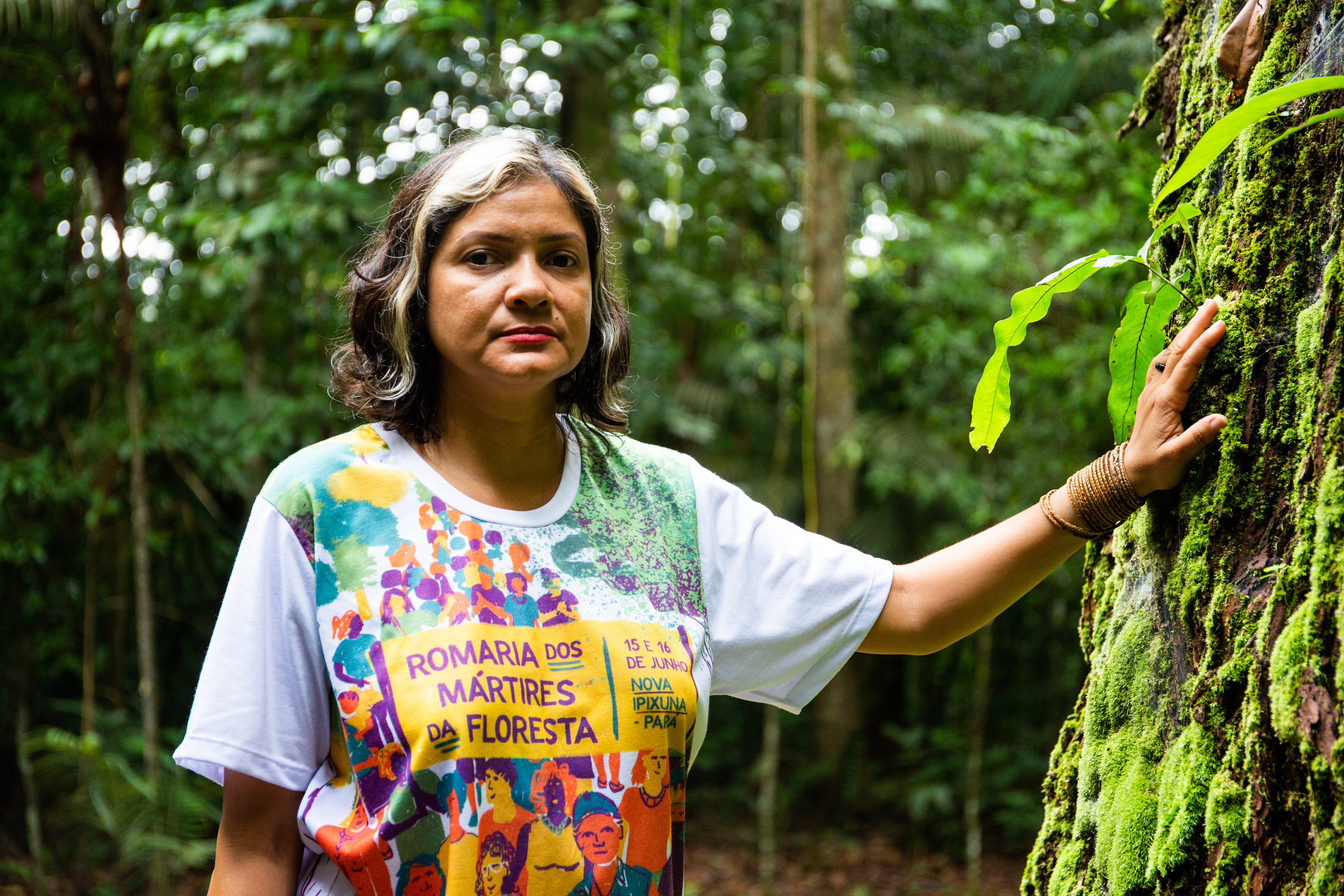For the families of activists who have been killed, the climate crisis threat is personal
During 2020, 331 environmental and human rights defenders were killed – individual safety needs to be safeguarded, too


Your support helps us to tell the story
From reproductive rights to climate change to Big Tech, The Independent is on the ground when the story is developing. Whether it's investigating the financials of Elon Musk's pro-Trump PAC or producing our latest documentary, 'The A Word', which shines a light on the American women fighting for reproductive rights, we know how important it is to parse out the facts from the messaging.
At such a critical moment in US history, we need reporters on the ground. Your donation allows us to keep sending journalists to speak to both sides of the story.
The Independent is trusted by Americans across the entire political spectrum. And unlike many other quality news outlets, we choose not to lock Americans out of our reporting and analysis with paywalls. We believe quality journalism should be available to everyone, paid for by those who can afford it.
Your support makes all the difference.For the first time ever, the climate crisis has been recognised by the UN as a threat to global security. Sir David Attenborough addressed this week’s UN Security Council meeting, and made a passionate plea, calling on world leaders to “recognise the moral responsibility that wealthy nations have to the rest of the world and put a value on nature that goes far beyond money”.
During the past twelve months, 331 environmental and human rights defenders have been killed – so, just as Attenborough calls on wealthy nations to do more to protect the world against the threat of climate change, individual safety needs to be safeguarded, too.
Yet, for those already fighting against environmental destruction – women like Claudelice, an Amazon environmental defender – the time for the world to act to protect their security is running out.
The day before I met Claudelice, she’d received another “poison pen” letter. The note – hand-cut newsprint – had come through her mother’s door. The card’s short, chilling message, “I will kill the rest”, was a thinly veiled death threat; perfectly clear to Claudelice, her close circle of friends and family.
Ten years ago this May, Claudelice’s brother, José Claudio, and sister-in-law, Maria do Espirito Santo, were killed for their “crime” of trying to protect the Brazilian Amazon where they lived. Ambushed near their small, forest home, they were executed by gunmen.
Following their murder, Claudelice was one of the few from her small, jungle community that took up the cause. She wanted to protect the home she loves, the environment that we all hold dear; and she refused to let the spirit of her loved ones die. Claudelice is the “rest” referred to in the threat.
“I wasn’t scared before. Not until the recent threats came through,” she explained to me holding the note as I sat in her living room, deep in the Brazilian Amazon – a world away from my own home, a London flat.
She told me about the other threats she had received, including one chilling moment when she was on the road where her brother and sister-in-law were killed and someone stopped a car to simply say, “This road is very dangerous.”
“In that context, that was a serious threat,” she explained, “and the card that’s come through, I thought, ‘It’s all starting again.’”
After years of increasing violence, the situation for Claudelice – and the many others who speak out – has been getting increasingly dangerous. Brazilian president Jair Bolsonaro’s strategy of “dismantling” environmental legislation and human rights protection has increased illegal logging and mining in the Amazon. His decision to amend gun laws – opposed by around two-thirds of Brazilians – means people can buy more firearms and ammunition, more easily; with less federal police and army oversight.
Although worried, this has only made Claudelice more determined to continue her work: “Yes, I’m afraid, but it doesn’t mean I’m going to stop what I’m doing,” she said, defiantly. “This cause is bigger than me. I know that I must be brave. I must go on.” Yet despite her desire to continue, she has been forced to take increased precautions to protect her safety.
The threats against Claudelice’s life are so serious that she has had to leave her home and to relocate to a secure location. This meant leaving her family and friends behind, leaving her history and identity, and living a life that would reduce most of us to constant fear.
The facts are clear: 2020 was the deadliest ever year for environmental and human rights defenders globally. According to Frontline Defenders’ most recent report, 331 human rights defenders were killed in the past twelve months. This is up from 304 killings the previous year and is the highest total ever.
When I think back to my time with Claudelice, the word “brave” is the first thing that comes to mind. Yet, the reality is that she is an activist, living under a death sentence. She refuses to bow to the threats that come through the door. The question I am left asking myself is why must she face the threat of death so our planet can live?
Claudelice and her community are supported by the UK charity Cafod and Brazilian organisation CPT in a project that opposes deforestation through the commercialisation of andiroba oil extraction and the non-destructive extraction of forest oils, nuts and forest farming



Join our commenting forum
Join thought-provoking conversations, follow other Independent readers and see their replies
Comments